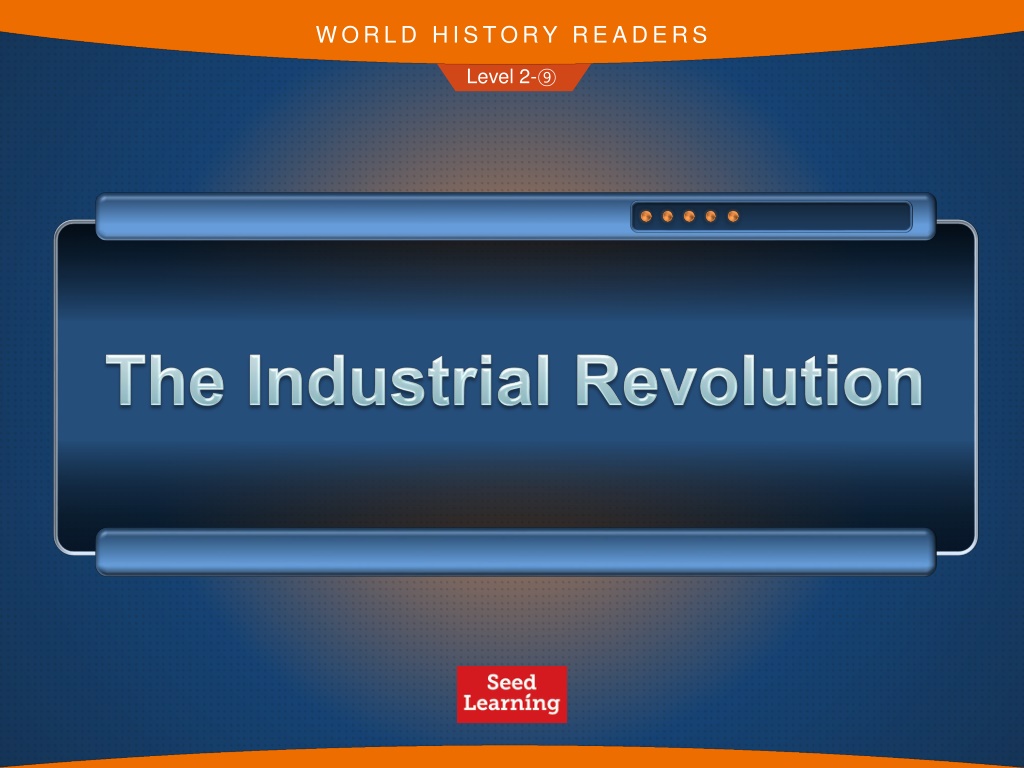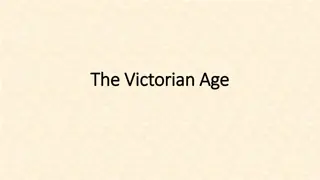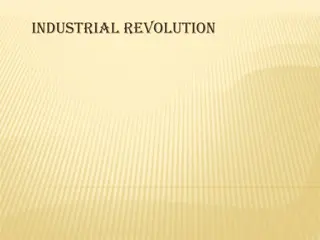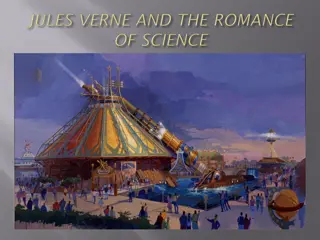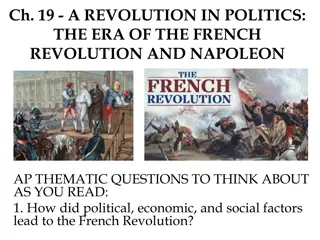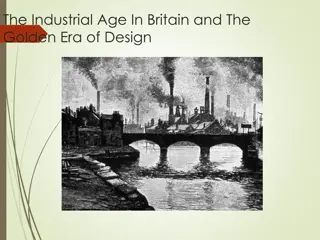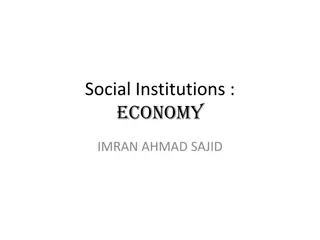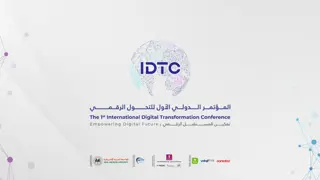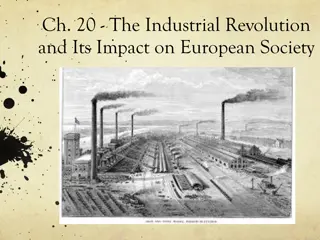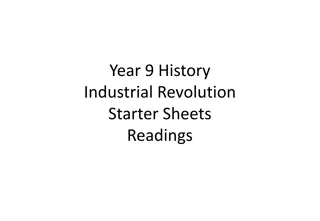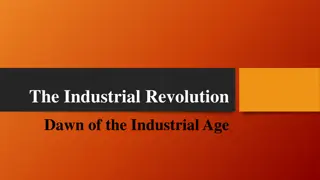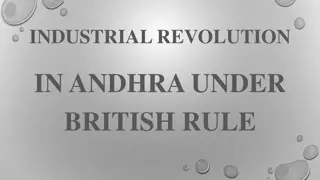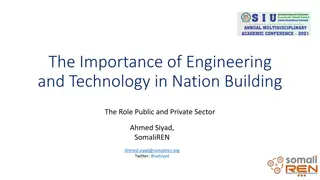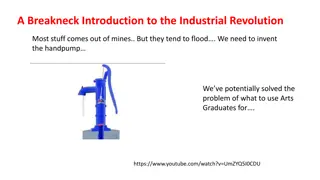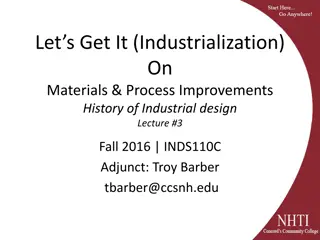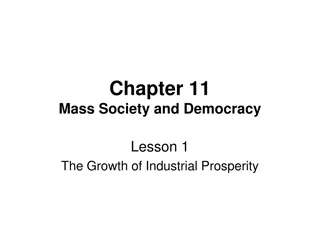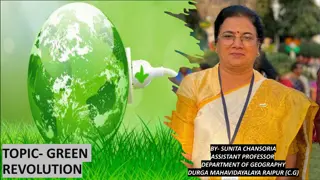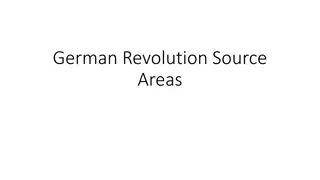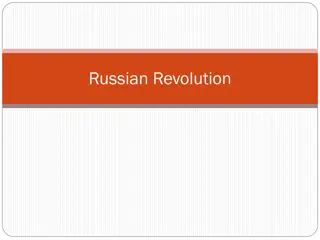Transformation Through the Industrial Revolution
Before the Industrial Revolution, people lived in small villages, making things by hand and growing their own food. The Industrial Revolution changed this by enabling people to work in factories, leading to urbanization. Britain, with ample coal and iron resources, played a significant role in kickstarting the revolution. Machines like the cotton yarn maker and steam engines revolutionized industries, leading to inventions like steel production and improved iron manufacturing, ushering in a new era of innovation and progress.
Download Presentation

Please find below an Image/Link to download the presentation.
The content on the website is provided AS IS for your information and personal use only. It may not be sold, licensed, or shared on other websites without obtaining consent from the author. Download presentation by click this link. If you encounter any issues during the download, it is possible that the publisher has removed the file from their server.
E N D
Presentation Transcript
WORLD HISTORY READERS Level 2-
People made things at home. They made things byhand, and even simple objects took hours to complete. What was life like before the Industrial Revolution? Before the Industrial Revolution in the 18th and 19th centuries, people lived in small villages and grew their own food.
This gave people more money and allowed people to buy things. How did the Industrial Revolution change people s lives? The Industrial Revolution allowed people to leave the farms to work in factories in towns and cities.
The Industrial Revolution started in Britain. Where did the Industrial Revolution begin? Why did it begin there? Britain had a lot of coal and iron. It was also a country which controlled large parts of the world at that time. This gave Britain a huge market to buy from. It also gave Britain a marketplace to sell the goods that were made.
Machines for making clothes faster were the first machines that led to the creation of factories. What kind of machines were the first ones developed during the Industrial Revolution? Richard Arkwright designed and improved upon existing machines that could make cotton into yarn. The new machines saved a lot of time. The process was three or four times faster than by hand. Who developed these kinds of machines?
This is an old water wheel driven by falling water. This is a windmill powered by the wind. What are these? Steam engines were invented during the Industrial Revolution. These new devices could create power anytime and anywhere to drive the machines in the factories. These are industrial power machines. In the 18th century, factories got power for their new machines from steam engines.
What were some other important inventions of the Industrial Revolution? Henry Bessemer invented a way to make steel. Other major inventions included better and more effective ways to make iron and steel. The steel and iron were used to make other machines, bridges, trains, and many goods for everyday use.
Steam engines and steel were used to create trains and steam ships. Because trains were quicker than ships, a lot of steel was used to build railroads and bridges. Soon, trains were used to carry goods from factories all over the world. How did transportation change during the Industrial Revolution? In the 1820s, John McAdam from Scotland developed a way to build roads that were smoother and lasted longer. This allowed people, and later cars, to travel or carry things more quickly, and with less trouble. How did roads that were used by people change during the Industrial Revolution?
Did the Industrial Revolution improve people s lives? Lifestyles and health improved for many. Many people moved to cities and made and bought new things that their parents could only have dreamed of. Factory owners became very rich. On the other hand, millions of people lived in poor conditions and had to work long hours in the factories, often in dangerous conditions.
smoothadj. not rough cottonn. a type of cloth made from soft fibers
consumern. a person who buys things or uses services ironn. a common, hard metal found in the ground
tooln. a device used to make things or do something coaln. a hard, black mineral burned for fuel, heat, etc.
smartphonen. a mobile telephone with computer features yarnn. string or thread used to make clothes
